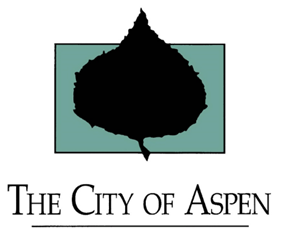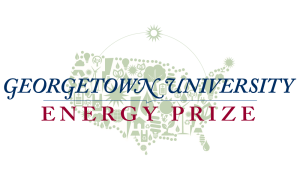Contacts for Media:
Ryland French, City of Aspen, ryland.french@cityofaspen.com, 970.429.1969
Murphy Robinson, City of Brighton, mrobinson@brightonco.gov, 720.685.7332
Katy Bigner, City of Fort Collins, kbigner@fcgov.com, 970.221.6317
Christofer Nelson, Georgetown University, christofer.nelson@georgetown.edu, 202.687.0367
January 14, 2015
For immediate release
Colorado Cities Named National Semi-Finalists in Two-Year Energy Savings Competition
What do the communities of Aspen, Brighton and Fort Collins have in common? They all want to save energy over the next two years, an effort that could result in a $5 million prize from Georgetown University.
The Georgetown University Energy Prize today announced the three Colorado cities as semi-finalists among the 50 communities in the national competition, which will include electrical and natural gas consumption.
The winning community must reduce its residential, municipal and K-12 energy consumption by 2017 to be eligible for the $5 million purse. The competition will help Georgetown identify, study, and advance best practices, creating tools for other cities and counties across the country to drastically improve their energy efficiency.
Finalists will be announced in 2017. The competition does not include businesses.
“One of the best opportunities to conserve energy is by increasing the energy efficiency of our homes and buildings,” said Jeffrey Ackermann, Director of the Colorado Energy Office. “We applaud the cities of Fort Collins, Brighton, and Aspen in their efforts to lead by example and better their local communities by implementing long-term, sustainable measures to reduce energy consumption.”
“Colorado is one of the few states where we have multiple communities competing – we know Colorado is an important state when it comes to energy policy, clean energy research and an interest in environmental sustainability,” said Christofer Nelson, program director for the Georgetown University’s Program on Science in the Public Interest, which is leading the contest. “We wish all three cities the best in the program.”
Competing cities come from 27 states. They are diverse socioeconomically and demographically, ranging from 5,000 to 250,000 people.
To win the competition, communities must:
- Demonstrate a reduction in energy consumption that is sustainable over two years, illustrating significant improvements in adoption rates.
- Demonstrate that their actions are replicable in other communities across the country.
Meet the Colorado competitors:
Aspen – 5,900 people, 220 miles west of Denver
The City of Aspen Canary Initiative’s Climate Action Plan goal aims to reduce Aspen’s greenhouse gas emissions 30 percent by 2020. To win the prize, the City, Holy Cross Energy, SourceGas, and Energy Smart Colorado at the Community Office for Resource Efficiency will offer residents rebates to complete energy efficiency upgrades, help them take control of their utility bills, make their buildings more comfortable and safe, and reduce their environmental impact.
Ryland French, Utilities Efficiency Specialist for the City of Aspen, noted, “We are asking the Aspen community to get involved and help us show Fort Collins, Brighton, and the rest of the nation that Aspen is the leader in smart energy use.” French added, “The local energy savings will make every community competing in the Georgetown University Energy Prize a true winner, but we want Aspen to finish on top, and win that $5 million prize.”
Brighton – 34,000 people, 20 miles north of Denver
Brighton’s vision is to become an environmentally sustainable community by shaping and implementing achievable, multi-faceted and measureable strategies that maximize opportunity and efficiency while minimizing cost. To celebrate the City’s advancement in the Georgetown University Energy Prize competition, there will be a Brighton Sustainable Kick-off Event from 10 a.m. – 2 p.m. Saturday, February 21 at the Brighton Armory Performing Arts Center.
“Brighton is a sustainable and livable city. We have three pillars of sustainability – economic viability, environmentally sound, and social equity. Being a semifinalist in the Georgetown University Energy Prize brings Brighton one step closer to achieving our energy reduction goals. This allows the City to continue to innovate viable resources to make Brighton a sustainable community for years to come,” said City of Brighton Mayor Dick McLean.
Fort Collins – 155,000 people, 60 miles north of Denver
Fort Collins has been recognized nationally as one of the first communities to organize the triple bottom line – the departments of Social Sustainability, Environmental Services and Economic Health - under one service area, known as Sustainability Services. The City also benefits from having its own municipal utility, which was the first municipal utility in the United States to register with the Global Reporting Initiative. The City aims to reduce its greenhouse gas emissions by 80 percent by 2050.
“Fort Collins is already on the national map when it comes to contributing our knowledge about energy conservation and building a community that is resilient to climate change,’” said Fort Collins Mayor Karen Weitkunat. “We appreciate the efforts of Georgetown to take what we all learn from this competition and turn it into best practices that can serve our entire nation.”
About the Georgetown University Energy Prize
The Georgetown University Energy Prize is a multi-million dollar competition that is challenging small- to medium-size towns, cities, and counties to work together with their local governments, residents, utilities, and others to achieve innovative, replicable, scalable and continual reductions in the per account energy consumption of gas and electricity.
Formally launched in April of 2014, the Georgetown University Energy Prize represents years of study and development that brought leading academics together with government officials, industry professionals, and top national and global non-governmental organizations.
###


![FortCollinsLogo_Matte [Converted]](../wp-content/uploads/2015/01/FortCollinsLogo-300x111.jpg)



